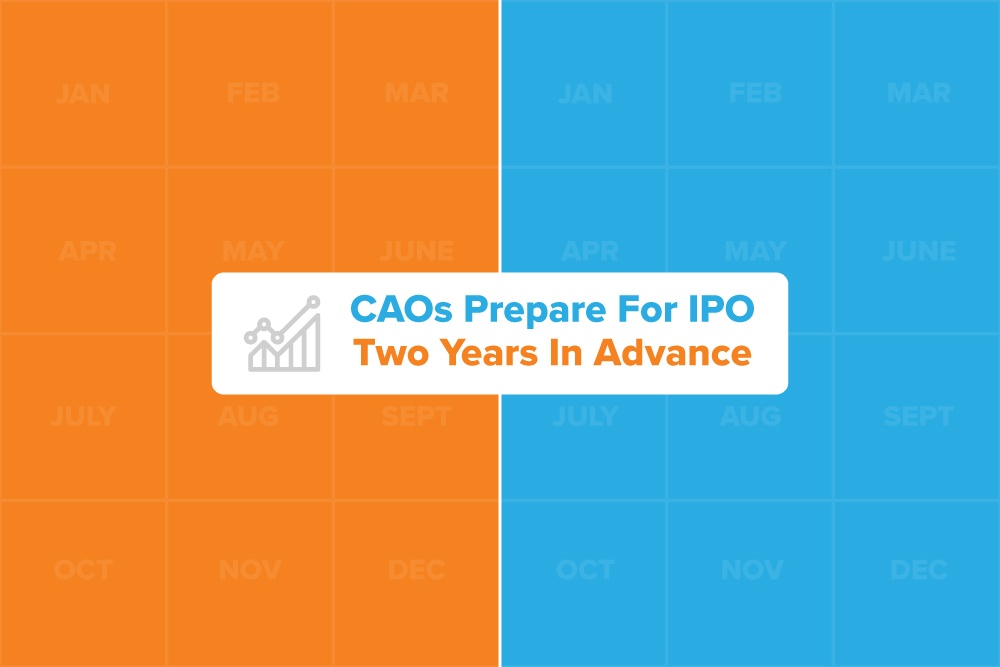With all the fanfare that typically accompanies an IPO – bells a-ringing and champagne popping – it can be easy to discount how much preparation is required for the IPO process. At Embark, we are certainly not strangers to the process and thought it best to provide some guidelines from a Chief Accounting Officer's perspective because, frankly, that's just the kind of people we are.

Now that we're done patting ourselves on the back, we'll begin our missive with a slight jolt to a CAO's central nervous system – preparation for an IPO should begin a full two years before any bells are rung and champagne gets sprayed like you just won the World Series.
Once again employing one of our favorite old sayings, as the esteemed Mr. Benjamin Franklin once said, failing to prepare is preparing to fail. An IPO only comes around once for any given company so it's important to get it right the first and only time. As always, Embark is here to help lead the way.
Internal Controls
As a public company, you will be required to provide management's assertion on the internal controls of your company in your item 9a of your second 10-K. In other words, as management, you will need to comply with Sarbanes-Oxley. Yes, like a black hole in space, SOX exerts its significant gravitational pull on the IPO process. Have a coordinated plan, including the following actions, to make it as smooth and efficient as possible:
- Perform a risk assessment
- Have a control matrix mitigating those risks
- Ensure the controls are designed properly
- Test those controls for operating effectiveness as of your year-end date
The earlier you get these control related actions in place, the more time you will have to identify and remediate any issues that might arise.
Audits
As a private company, your external auditor was likely just performing AICPA audits that had a very brief dalliance with your internal controls. However, as a public company, you'll be required to have PCAOB financial statements and ICFR audits each and every year, including three years' worth in your initial filing. The sole exception to this mandate is if you went effective under the JOBS Act, meaning it's only a two-year requirement.
These are dramatic changes and will require much more time from your accounting team when they are already stretched to capacity with everything else required during the process.
Corporate Governance
The Halcyon days of your company's pre-IPO existence are a great time to start thinking like a public company in terms of corporate governance. Start putting together a board of directors that collectively possess the required knowledge and skills to help both steer and lead your company into the future. Good directors don't just fall out of the sky so start the process early and be meticulous with your choices. You should also start putting together or reassessing your audit and compensation committees, keeping the exchange listing and SEC requirements in mind while doing so.
Costs
Think of IPOs as diamonds – no two are alike and the good ones will definitely put a hitch in your giddy-up. In other words, they don't come cheap. Your IPO will include these costs and likely a few more:
- Legal fees
- Audit fees
- Accounting consulting fees
- Printer costs
- Liability insurance
- Other fees, including:
- SEC filing fees
- Listing fees
- Travel costs
- Other consultants
- Additional payroll
- Public company executive salary
- Investor relations
- SEC counsel
- Internal audit (SOX)
- Additional headcount to comply with public requirements
- Corporate governance
The IPO process is meticulous and demanding but that should in no way imply that it's insurmountable or place an undue burden on your temporal lobes. As a CAO, you likely already have a well-organized and deliberate system in place. Start early, incorporate these IPO preparation guidelines into your system and enjoy the ride because your company will only experience it once.







